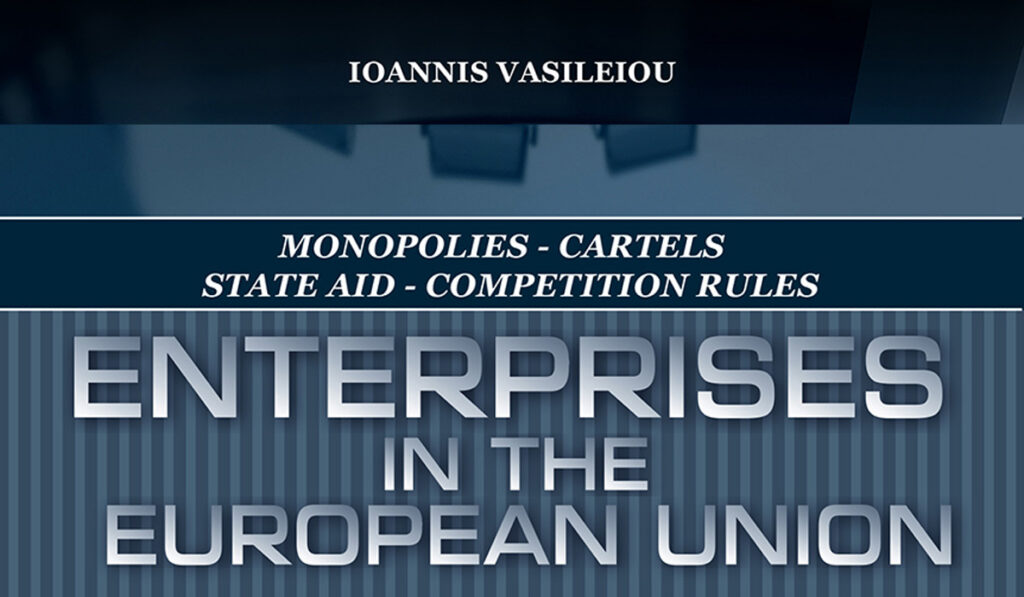Enterprises in the EU-Monopolies-Cartels-State Aid-Competition Rules (2019) (Independently Published/Amazon KDP-Available through Amazon)
The European Union, since the first day of its birth, has been involved in a continuous and consistent struggle in order for rational competition rules for businesses to be developed and implemented. The necessity for unconditional compliance with these rules has been boosted by geometric progress since the beginning of the global economic and financial crisis.
The Union has devoted itself to intensified efforts both to effectively protect small enterprises and to avoid supporting all kinds of troubled ones. Its primary aims are to promote liberalization of markets, the “war” against monopolies and the detailed scrutiny of both State aid and mergers.
It is crystal clear that a sound and “constructive” competition within the Union offers generous help to European businesses to become stronger, in order to be able to survive in even more difficult conditions of global competition. The aim of the author is to critically examine the Union’s overall activities on these thorny issues and to decide whether and under which conditions there is indeed room for economic recovery.
This book can be purchased through Amazon. Please see below:
Amazon Author Page (Amazon.com)
Books by Ioannis Vasileiou on Amazon Australia
Books by Ioannis Vasileiou on Amazon Brazil
Books by Ioannis Vasileiou on Amazon Canada
Books by Ioannis Vasileiou on Amazon India
Books by Ioannis Vasileiou on Amazon Mexico
Books by Ioannis Vasileiou on Amazon Netherlands
Books by Ioannis Vasileiou on Amazon Singapore
Books by Ioannis Vasileiou on Amazon Turkey
Books by Ioannis Vasileiou on Amazon UAE
Business site of Ioannis Vasileiou in English
Business site of Ioannis Vasileiou in Greek
TABLE OF CONTENTS
Introduction: Book Structure and Targets
Chapter 1: Concept and Significance of European Union Competition Rules: How Are Enterprises Precisely Affected?
Chapter 2: European Union Institutions in the Context of Competition Rules
Chapter 3: Concluding Remarks
Bibliography
